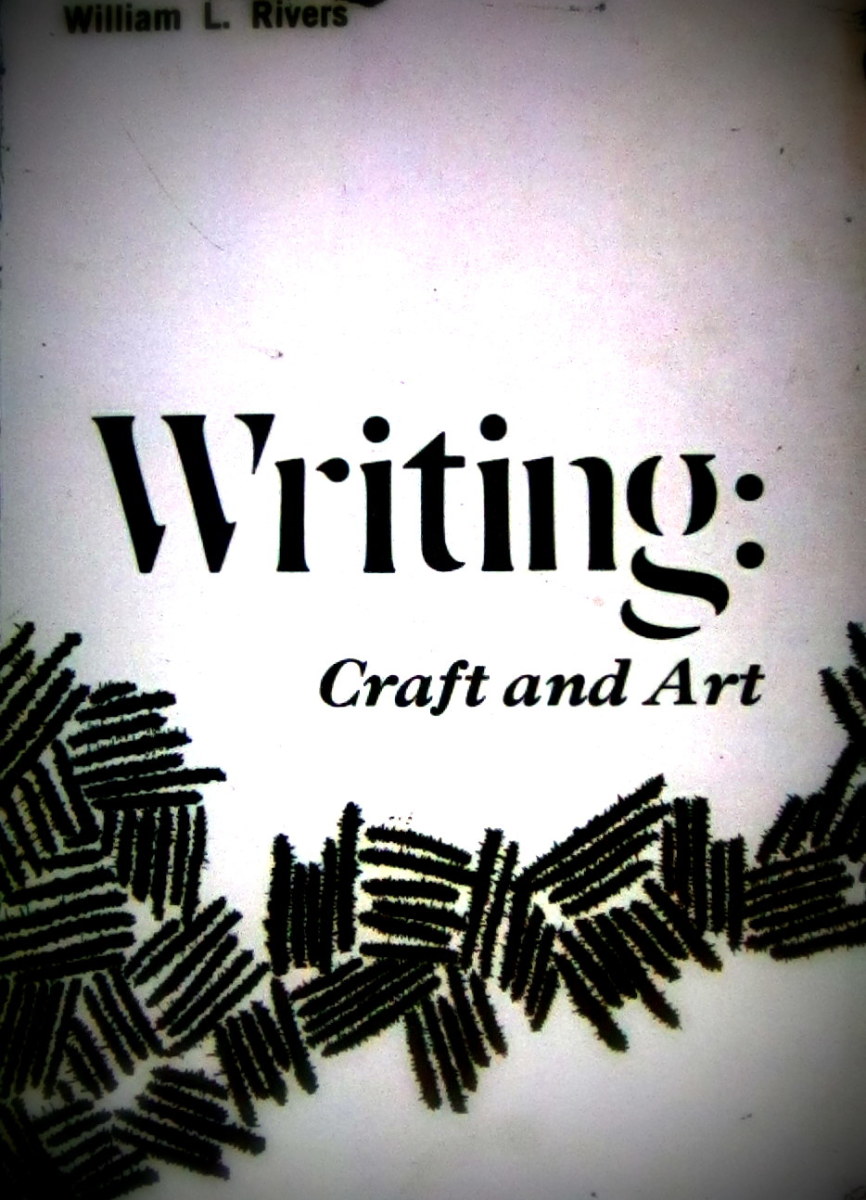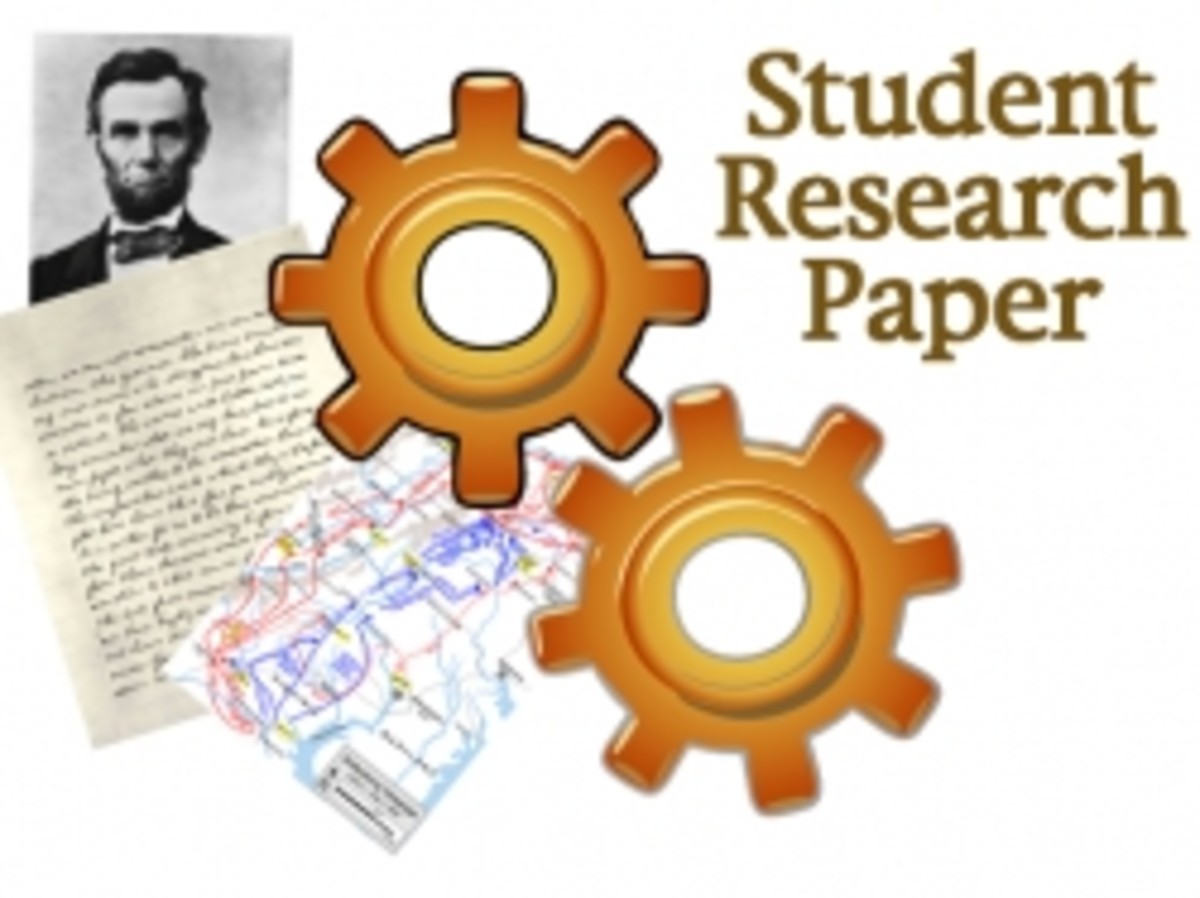Writing High School and College Research Papers

By Joan Whetzel
Writing high school and college level papers takes a great deal of time and effort on the part of the student. It takes time to do the research, time to organize the material, and time to write the paper and create a bibliography. It's not difficult, once you know the steps and take the time - a little each day or each week - to get it done.
Why Students Should Write Their Own Papers
Lately, there seems to be an increase in companies catering to college and high school students who don't want to, or can't, write their own reseach papers. There also seems to be a rise in the number of students on Craig's List and other sites looking to hire writer's to do this work for them. Not only is this considered academic dishonesty on the part of the student, it also raises ethical questions on the part of the writer making money off that student. In fact, for writers with college degree, if the college or university that awarded their degree finds out that they wrote someone else's college or high school paper(s) for them, those writers may find out quickly that their university can - and will - take away their diploma. Colleges and universities consider this quite a serious matter, and it should be a serious matter. So, for those students setting their sights on getting a degree, then prepare now to do your own work, and learn how to accomplish these academic writing assignments.
Understanding Writing Assignments
The first step for each writing assignment is to understand what each paper requires. Begin this process as soon as the teacher hands out the syllabus (on the first day of class). By understanding the assignment from day one, students can begin planning their writing assignments early, and work a little every day or several days a week to completing each paper. Planning early means you have the entire semester to get all writing assignments done. Lack of planning, means you may have up to 6 or 8 papers to complete at the end of the semester (depending on the number of classes and the number of papers required for each class), and no time to accomplish this feat. To make sure you understand the assignment, follow these steps:
1. Read the professor's instructions once, all the way through.
2. Underline the main points, or the points that the professor seems to consider most important (topic, required resources, word or page count, paper format including margins and font type and size, bibliography and citation, and the style - APA, MLA, Chicago Manual of Style).
3. As you figure out your professor's teaching style, underline phrases in the instructions that are similar to phrases he or she uses when emphasizing a point in class.
4. Listen to any ideas the teacher offer's on how he or she wants students to approach the topic. Then consider the teacher's ideas along with your own ideas for completing the papers
5. As questions arise, ask the teacher. Do this early on. In fact, most teacher's provide their university e-mail addresses on the syllabus just for that purpose. So e-mail any questions you might have, and soon enough the teacher will get back to you with the answers so that you can get to work. (Asking your questions early on might even earn you a few brownie points with the teach because it shows initiative on the part of the student).
6. Make note of special instructions for any resources that the teacher may require for this paper. I had one professor in college who required a minimum of 10 sources to write his papers. He provided a list of resources on his syllabus, of which students were required to use at least 5 as part of the minimum of 10 sources. Other professors used books as required reading, and these required books became the basis of the paper's topic. Look for tutors, other students, and anyone else who can help you out with any questions you might have along the way.
Argument Papers
Argumentation papers include a thesis (main idea or argument), a context or background information for the argument, supporting evidence, counter arguments (opposing) arguments, and a section answering the objections. These papers, of course, should begin with an introduction and end with a conclusion.
Research Papers
Students stress out over these all the time because the papers are often about topics that are unfamiliar to students. The whole point of these research papers is to help students become familiar with the topics. You have heard the old adage "Write what you know." This is the time to break that rule. Instead of writing what you know, write the research paper about what you don't know. Instead of being afraid of what you don't know, get excited about having the opportunity to write about what you want to know. It's an opportunity to conduct your own investigation and report back on what you found out. Remember as a kid, the first time you read a book about snakes, or the first time you made an erupting volcano for a science fair project? Take some of that excitement into the research and writing process. Carry this attitude with you when you start working. If you're exited about finding out something new, and can't wait to tell everybody - especially the boss or teacher- what you found out, your enthusiasm will spill over into the report, which can only lead to good grades at school and potential raises and promotions at work.
By the way, these are the types of papers that professors usually require citation on; either parenthetical citations, footnotes, or endnotes. So make sure you pay attention to the professor's instructions up front and practice doing it correctly as you go through the process of researching and writing the paper. Use the research and writing process as practice for citation, so that when you complete the final draft, you'll have it down pat.
Exploratyr Papers
These are similar to argumentation papers in that they require the student to establish an argument and back it up with supporting evidence. It is also a bit like a research paper in that some research is required to explore the argument and its evidence. Basically, the student needs to begin the paper by asking a question, then collect information that could answer that question. In essence, your exploring the information you find on the topic as means of explaining the answer to the question.
Annotated Bibliographies
These are not as common as the other types of college level writing assignments but they aren't totally unheard of either. In this case the student must create a bibliography in MLA, APA or Chicago Manual of Style. Follow the instructions for the writing style preferred by the professor for creating the bibliography.
But there's one more step; the bibliography must be annotated, which means the basic argument offered by each source must be summarized. This way the teacher anyone else reading the document, knows what the student took from each source, or how the student intends to use each source to write his or her paper. Doing this as a first step, before writing the research paper may actually help clarify where the paper's topic is going, or how the paper may be written more clearly. It may also help the student get a better handle on the topic.
Particularly extensive, well researched, well thought out annotated bibliographies have been published because they offer an all-inclusive overview of everything significant that has ever been written on a topic. It is then available for other researchers so that they can find specific resources for their own research. Students can look for already published annotated bibliographies when doing their research in order to find sources they may not have previously considered.
Book Report
Yeah, yeah, yeah. You've done these since elementary school. College and high school level versions of these papers are required to be more extensive, more in-depth in their exploration of the book being discussed. This is sort of a combination of the book reports you already know how to write and a much longer exploratory paper. These are usually required in English and English Lit classes, though some history professors may require something along this line for their required reading.
Essays for Exams
Essay exams require that students have a full understanding of what has been discussed throughout the semester. It means attending all of the lectures, doing all of the reading, and taking good notes. It also requires organizing those notes so that patterns in the information begin to emerge. Organizing the notes into an outline may help condense the information in your brain. When it comes time to take test, then, write out a brief version of your outline - yes, from memory - on the inside or back of the blue book (the test folder) and expand on that to help write your essay answers.
To get started on the essay test, determine how many questions you have to answer and how much time you have to complete the test. If you have an hour and 6 essay questions to answer, that means you have approximately 10 minutes for each question. Read through the questions, jot down your outlines, spend 5 to 7 minutes writing an answer for each question. Then spend the remaining time going over your answers and fill in any additional information.
Bibliography
Purdue Online Writing Lab. Common Writing Assignments. Downloaded 3/4/2012.
http://owl.english.purdue.edu/owl/section/1/3/
Eastern Kentucky University. The Argumentative Paper. Downloaded 3/5/2012.
http://people.eku.edu/williamsf/RhetSum/default.htm
Capitol Community College. A Guide for Writing Research Papers Based on Modern Language Association (MLA) Documentation.Downloaded 3/5/2012.
http://www.ccc.commnet.edu/mla/index.shtml
Custom Writings. How to Write and Exploratory Essay. Downloaded 3/5/2012.
http://www.customwritings.com/blog/types-of-essays/write-exploratory-essay.html
Essay Paper. Definition Essay. Downloaded 3/5/2012.
http://www.essay-paper.net/definition_essay.html
University of Victoria. Answering Essay Questions. Downloaded 3/5/2012.
http://www.coun.uvic.ca/learning/exams/essay-questions.html
Study Guides and Strategies. The Essay Exam. Downloaded3/5/2012.







